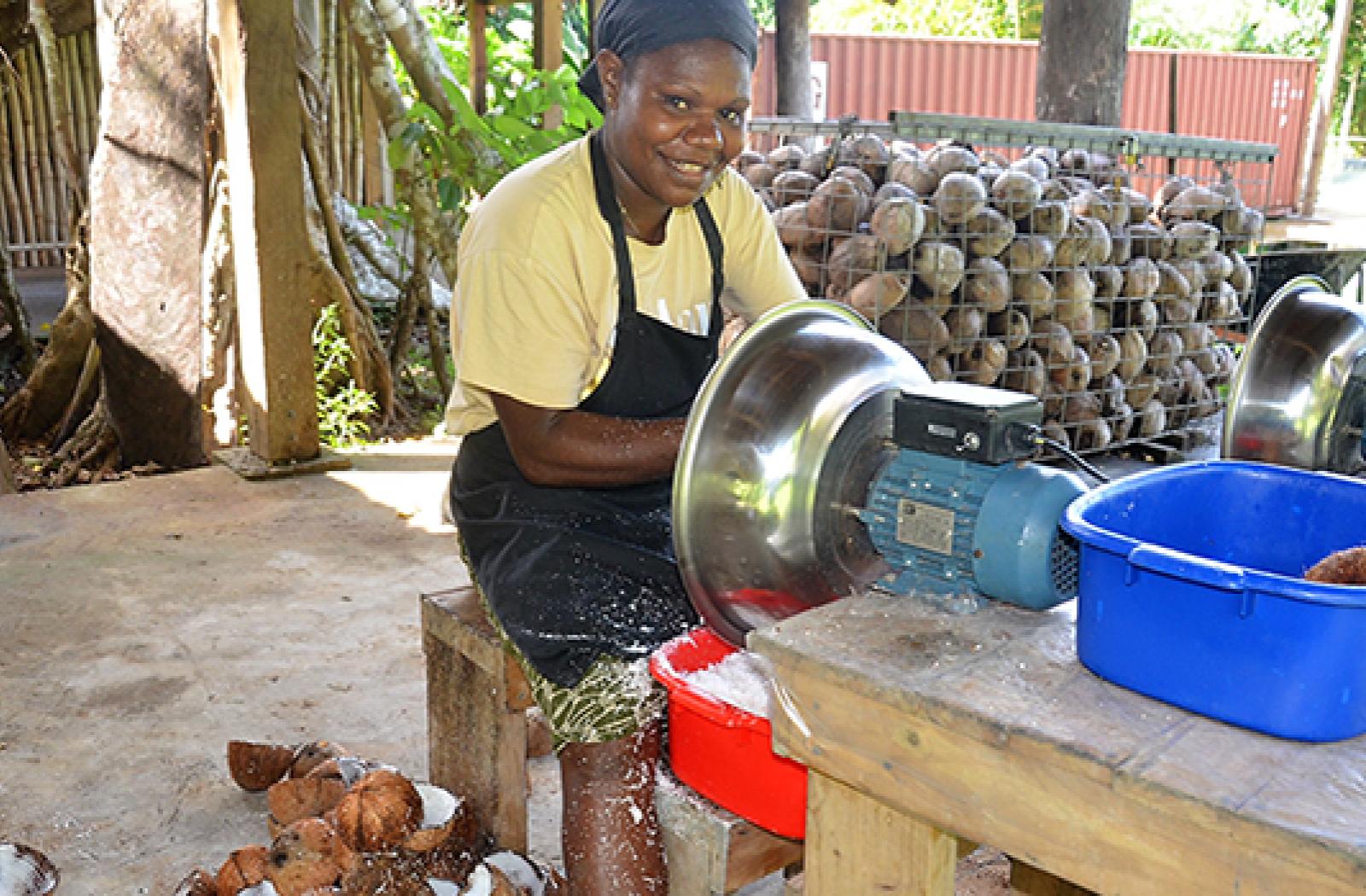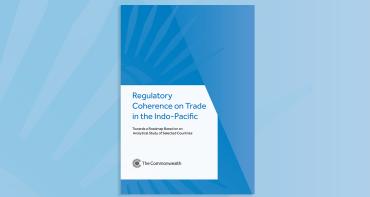In the Pacific, coconut is king. Known as the ‘tree of life’, locals make use of every part of the tree to survive – the fruit for eating, husks for fuelling fires, fronds for making multiuse baskets, and the trunk for building houses

In the Pacific, coconut is king. Known as the ‘tree of life’, locals make use of every part of the tree to survive – the fruit for eating, husks for fuelling fires, fronds for making multiuse baskets, and the trunk for building houses.
Coconuts also drive economic growth, with Pacific Island countries supplying 50 per cent of the world’s copra trade. Papua New Guinea is the world’s largest exporter of copra - the dried coconut flesh from which oil is extracted - followed by Vanuatu.
However, fluctuating global copra prices can leave small Pacific economies very vulnerable.
Coconuts landscape
Opening a Commonwealth workshop on micro, small and medium enterprises in Port Vila last week, Vanuatu’s Deputy Prime Minister Bob Loughman explained: “In 2017, Vanuatu exported 1.8 billion worth of copra (roughly USD 18 million). In 2018, the global price plummeted, and as a result the value of our copra exports fell by 75 per cent.
“My question is, why is Vanuatu still producing copra? Why can our farmers and communities not produce coconut oil instead?”
Learning from experience, the island nation of 280,000 people set out to transform the way it trades with others. The aim is to move up the ‘global value chain’ – the production cycle from the field to the final product – to target higher value exports.
These aspirations have been backed by EUR 20million from the European Development Fund for the Vanuatu Value Chain Programme. But as for many other small island states, there are several key hurdles to overcome.
Challenges and opportunities
In Port Vila, Commonwealth acting head of trade competitiveness, Sujeevan Perera, told delegates about a cruise ship which once docked at a Caribbean destination and exhausted the country’s beer supply. It took a month before stocks were refilled.
He said: “Pacific suppliers are mostly micro, small and medium sized enterprises (MSMEs). Would they be able to fill the demands of, say, a large supermarket that needs several 50ft containers of a product each week?
“If they do not have the capacity, buyers and investors can move elsewhere.”
There are possible solutions: one is having a regional hub, supplied by other smaller countries for export to a bigger client. Otherwise, businesses could focus on high value niche markets.
The latter is a path local business owners are already actively pursuing.
Sandrine Wallez, CEO of Alternative Communities Trade in Vanuatu (ACTIV) Ltd, is looking to export highly specialised goods such as vegan chocolate, virgin coconut oil and coconut jam.
She said: “Nowadays, people are looking for more organic products. Pacific products are already organic by default, so we should take advantage of this.
“However, we’re all facing the same problem in the Pacific: we are small, which is very difficult in this world market of bulk commodity and big volume.
“We have niche market products which have high value, but low volume, so to get out of the country is very expensive. Sometimes it’s quite difficult to access some markets.”
She urged development partners to support Pacific businesses in finding the right customers, networking, and developing a Pacific-wide brand that competes with others across the globe.
Enhancing connectivity
The meeting in Port Vila on 10-11 April was the first to drill down into the issues faced by micro, small and medium enterprises in agribusiness, since the Commonwealth adopted its flagship programme on trade and investment. Known as the Commonwealth Connectivity Agenda (CCA), it aims to unlock $2 trillion worth of intra-Commonwealth trade by 2030.
Delegates agreed the coconut sector in the Pacific has great potential. However, it needs commitment and coordination from a range of players, including government and businesses.
CCA lead Kirk Haywood said: “This first meeting of the supply side connectivity ‘cluster’, or working group, acted as a platform for members to share experiences, forge networks, and exchange solutions for common problems.
“This will be backed by further research and strategies under the CCA that would help Commonwealth countries, especially small states, benefit more from global trade.”
The meeting agreed on an action plan that will outline opportunities and challenges for small and medium agribusinesses, explore financing options, and look at harnessing technology for business development.



